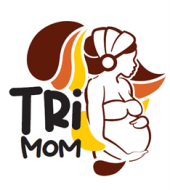TRI-MOM
Integrated antenatal screening for HIV, syphilis and hepatitis B virus (HBV) infections among pregnant women in Burkina Faso and The Gambia (TRI-MOM: Triple elimination model of mother-to-child transmission of HIV, syphilis and HBV)
The main objective of the TRI-MOM project is to strengthen the prevention of MTCT of HIV, syphilis and HBV among pregnant women in Burkina Faso and The Gambia, based on an integrated, horizontal and coordinated triple elimination strategy for MTCT as recommended by the WHO and the health authorities of the two countries involved in the project.
The specific objectives are to:
1/ Strengthen the provision of HBV screening combined with HIV and syphilis screening for pregnant women in maternal and child health services in Burkina Faso and The Gambia.
2/ Improve access to MMT prevention measures for the three targeted infections
3/ Evaluate the integrated and coordinated strategy implemented (Operational Research)
Sylvie Boyer
Pa Ousman BAH (National AIDS Control Programme); Amie SALLAH (Young Gambian Mums Fund), Alice GUINGANE (Centre Muraz/INSP); Asta JOBE (Young Gambian Mums Fund); Arlette KAMBIRE (REVS PLUS); Dramane KANIA (Centre Muraz/INSP); Maud LEMOINE (MRC The Gambia Unit); Daouda MARE (REVS PLUS); Gibril NDOW (MRC The Gambia Unit); Kpènibè Victor Ghislain SOME (REVS PLUS); Yusuke SHIMAKAWA (Institut Pasteur); Jeanne Perpétue VINCENT (Institut Pasteur); Erwan VO QUANG (MRC The Gambia Unit)
Funding: Expertise France (The Initiative)
Centre Muraz/INSP, Burkina Faso ; REVS PLUS, Burkina Faso; MRC The Gambia Unit, Gambia ; Young Gambian Mums Fund, The Gambia ; National AIDS Control Programme (National Programme for the Control of HIV/AIDS), The Gambia ; Institut Pasteur, Paris, France
This project is supported by the French National Research Institute for Development (IRD)
West Africa is heavily affected by hepatitis B virus (HBV) and HIV infections, as well as syphilis, with co-infection increasing the risk of mother-to-child transmission (MTCT) of these diseases and its neonatal consequences. MTCT-related morbidity and mortality are a cause for concern in this region. However, MTCT of HIV, syphilis and HBV can be prevented through simple and effective interventions, including integration into a "triple elimination" model, as recently proposed by the World Health Organisation (WHO), which could accelerate the control and elimination of these infections.
The TRI-MOM strategy includes:
• training healthcare workers in the screening and prevention of MCTI for the three infections
• free screening for the three infections using rapid diagnostic tests offered to all women attending their first antenatal consultation
• access to IMN prevention measures for all women who test positive
• capacity building for women in the field of health
The operational research component will evaluate the effectiveness of the TRI-MOM strategy in improving access to MMT prevention (screening, treatment and vaccination) for the three infections (HIV, syphilis and HBV) among pregnant women and will explore the individual and structural levers and barriers to access to MMT prevention. A mixed approach will be used, based on three specific data collections that will take place before, during and after the implementation of the TRI-MOM strategy:
• a mixed cross-sectional survey before and after the implementation of the strategy, with a qualitative and quantitative component
• a cohort study of pregnant women who test positive for one or more infections during the implementation of the TRI-MOM strategy
• collection of data on costs and cost-effectiveness
This project is in line with the health guidelines of the two countries where it is being implemented and those of the Global Fund to Fight AIDS, Tuberculosis and Malaria, which call for coordinated, integrated and horizontal strengthening of prevention and treatment activities. As the first project to evaluate a triple elimination strategy for HIV/syphilis/HBV in sub-Saharan Africa, this project is expected to have a major impact on beneficiaries, countries in the region and international health institutions. It will give greater visibility to women, who are often vulnerable in sub-Saharan Africa, and strengthen the prevention of infections that are still too often neglected in sub-Saharan Africa.
The strategy will be implemented in 2023 and plans to screen approximately 17,000 women in both countries.




 == Image
== Image


